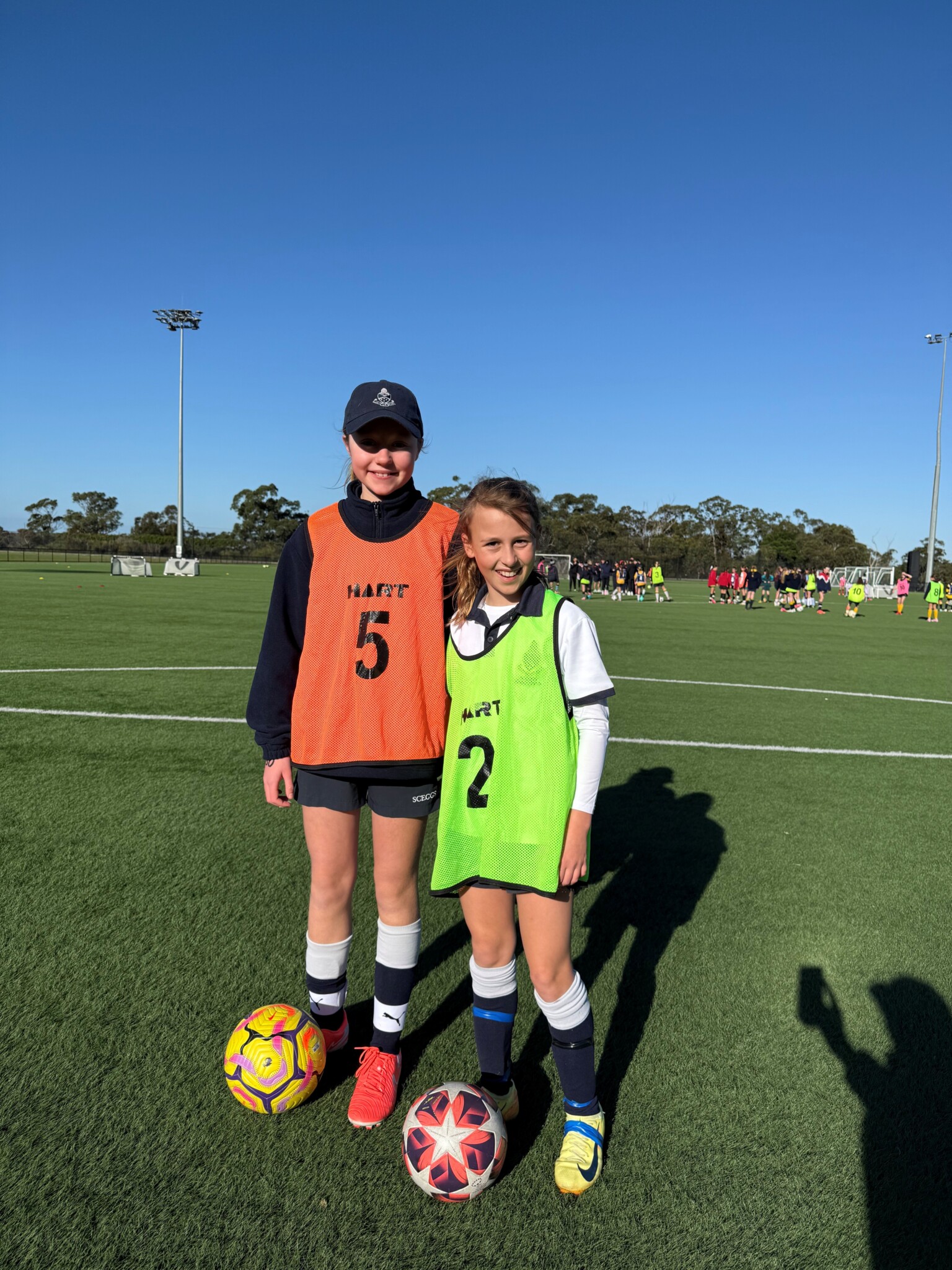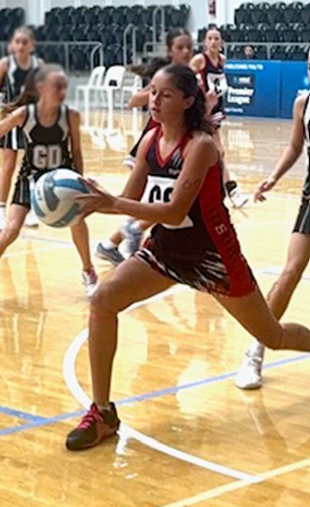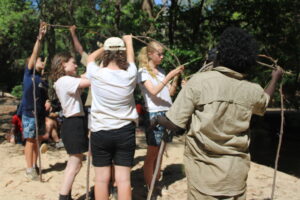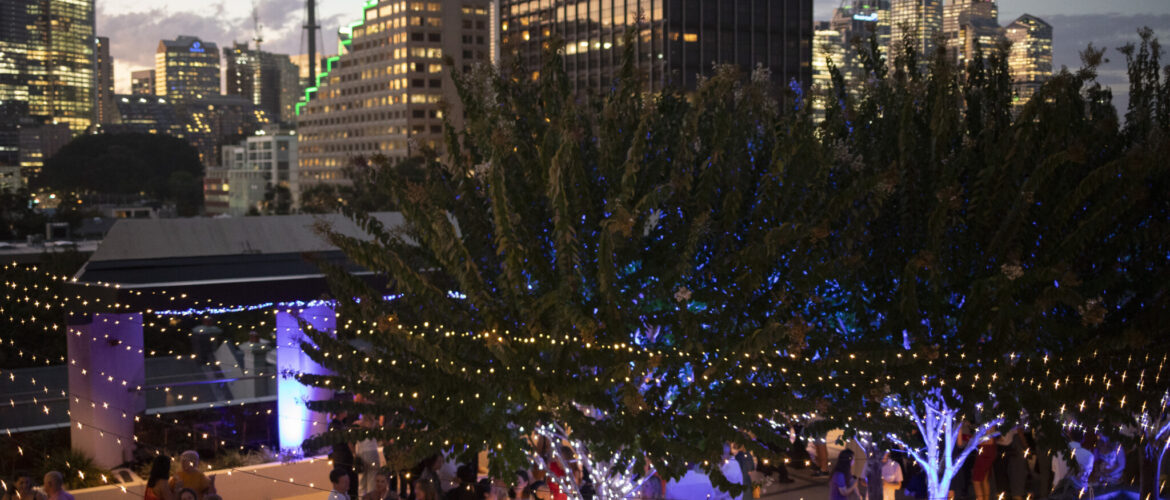Cape York 2024 Student Immersion
This week’s reflections of the Cape York Immersion come from Scarlett Simpson, now Year 11 students who travelled with the Yellow Group to Wurrey and Melsonby homelands.
Cape York Reflection – Scarlett Simpson (Year 11)
The Cape York immersion was an incredible, immersive, and eye-opening experience.
In the first homeland, Wurrey, where we visited Uncle Bernie and Aunty Sheryl, we got the opportunity to be welcomed onto their private land and spend our days being taught culture and traditions. At night, the group and our hosts would sit around the fire or campsite to have a nightly yarn. I was exposed to a perspective I had never before considered through their generous storytelling. Aunty Sheryl, in particular, used her experience as a long-standing school principal of the area to educate the girls on matters we had learned about in school, for example, welfare, unemployment trends, young parenting, school attendance, and crime. It was jarring to hear these topics from the perspective of somebody who had lived through them and guided their community about them. The issues of these communities were removed from the bubble of the classroom and brought to life through her words. Uncle Bernie, equally eager to share, was unyieldingly generous with his words and wisdom, taking every opportunity to share his stories and lessons with us. Notably, he emphasised how his 40 years with the Mitsubishi company had taught him the importance of keeping everything in life orderly and on time, something also emphasised by his fathers’ lessons to him. The stories of his land, Wurrey, were a privilege to hear, especially as he demonstrated his deep understanding of the flora and fauna, hunting animals and areas, language, and history, guiding us through the values and stories of his culture. Part of this was the activities he and Aunty Sheryl conducted with us, such as spear-throwing, painting a Wurrey sign, and making damper. The Damper scones we made were doused in Uncle’s honey and butter and made a huge mess. The first moving day of the trip was a hard one, as we had to say goodbye to the romantic mountains and sparse treescape that the group had become attached to in our 3-day stay.
Uncle Bernie left us with a blessing,
Old Man Fog will always follow you, keeping you safe and return you to your families. When you see that low cloud on the hill, that is old man fog with you.
Our second homeland, Melsonby, was a ranger sight and national park rather than a private property. Because of this, the area we explored was larger, and the activities starkly contrasted with those experienced in our first homeland. First, the Traditional Owners Uncle Larry, Uncle Bulla, and Rodenta took the group on a tour throughout part of the property, showing us some of the climate management techniques used as well as some traditional uses of the land. On this trip we were shown some of the ancient rock art in the area, signed by the artist (by holding his hand against the stone and blowing ochre around it) and his son (a smaller, similar handprint just beneath the first). From here, we were brought handline fishing on a bus to one of the river sights. We used some reels of line and chopped liver to fling our hooks into the currents. Everyone was sweaty, sticky, and covered in guts, but we all enjoyed ourselves. Uncle Bulla caught a Barramundi, and Aunty Ginger caught a smaller fish. That night, I was able to join a group around the fire who were talking to Rodenta, one of the younger Traditional Owners. She shared her story of being victimised by the foster care system and being separated from her brother, something she felt was proof that the Stolen Generation had never ended, just changed how it looked. Like Aunty Sheryl’s stories about the education systems, it was transformative to hear the first-hand stories of victims of government actions, rather than through school or in the news. Rodenta also shared her thoughts on the government’s recent moves to cull the crocodiles in Northern Territory, and how people had to learn to live on their land, not the other way around, which was why there had been so many animal deaths since colonialism. On the final day of staying in this homeland, the Traditional Owners took us to see the land’s most impressive gallery of traditional rock paintings. This site encompassed generations of knowledge, tradition, and history of the land, telling the story of the people right up until they started trading with white colonisers. The stay at the homeland was completed with the cooking of a massive meal, prepared by burying spiced meats and vegetables underneath the dirt and cooking it with hot rocks and smoke. The meat was extraordinarily tender and juicy, cooked to perfection, and the meal was outstanding on the trip.
The discussions around the fire with Traditional Owners were by far my highlight of the trip. I was afforded knowledge, wisdom, and perspective on matters I had never considered deeply before, and it has reshaped my understanding of politics, colonialism, and culture, which was not available through the traditional education systems. This was a once-in-a-lifetime opportunity for me and others to come together with the Traditional Owners of the land we live on, and for that, I am deeply grateful for my experience.









































